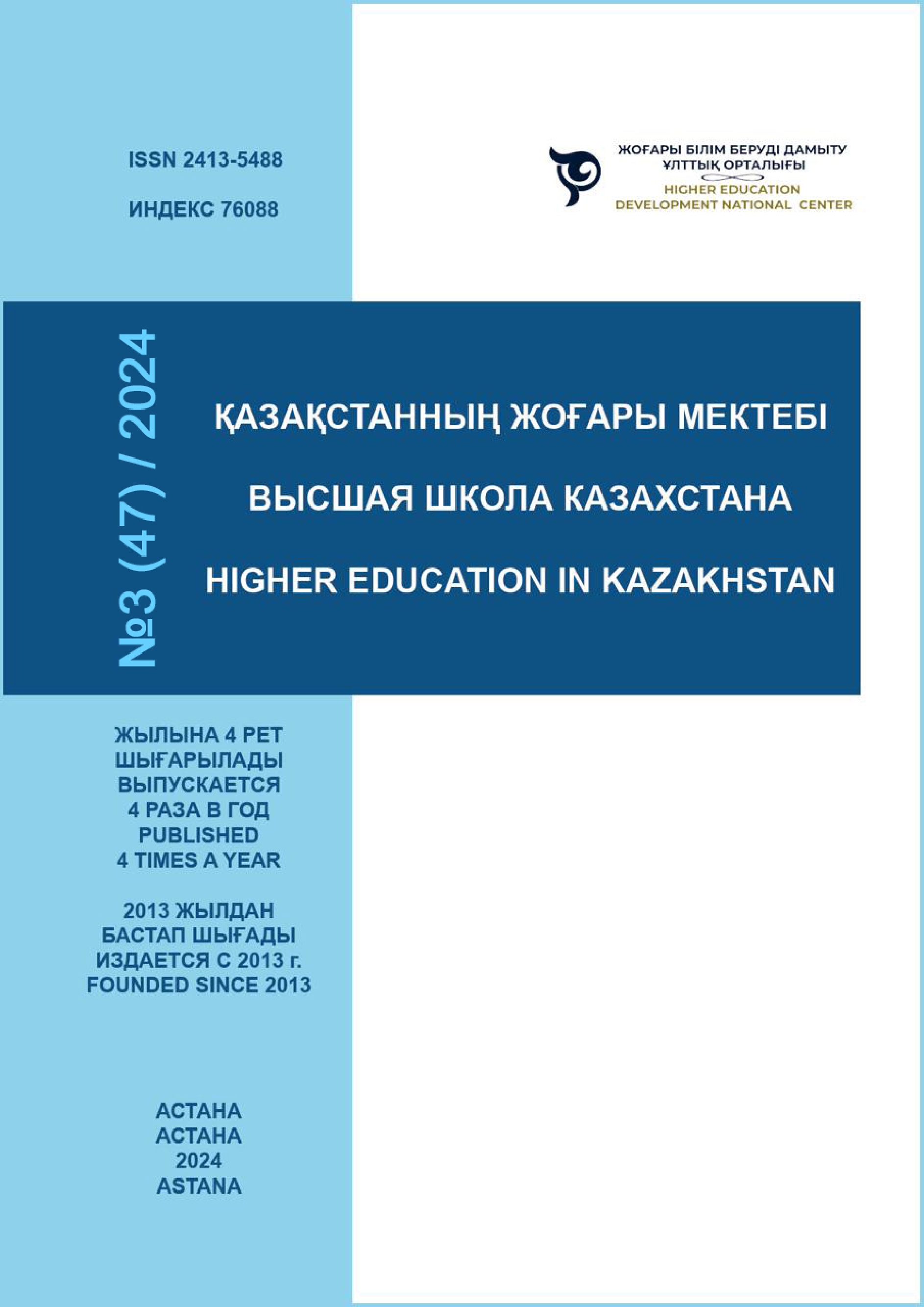DESIGNING AND IMPLEMENTING APPLIED BACHELOR'S PROGRAM: A COMPREHENSIVE DEVELOPMENT MODEL
DOI:
https://doi.org/10.59787/2413-5488-2024-47-3-166-173Abstract
Modern education faces the challenge of integrating theoretical knowledge with practical skills, which is particularly crucial for the training of mid-level professionals. Practice-oriented educational programs shorten the adaptation period for graduates and enhance their competitiveness in the labor market. Special attention is given to applied bachelor's programs that combine theory and practice, fostering rapid professional development of graduates.
The European higher education system offers short cycles leading to a bachelor's degree. The practical focus of these programs is ensured through partnerships between educational institutions and industry organizations, enabling students to develop the professional skills required by employers. This makes applied bachelor's programs key elements of educational reforms in the EU.
In Kazakhstan, applied bachelor's programs have not yet gained widespread popularity due to a lack of regulatory support, but successful pilot projects demonstrate the potential of this direction. These programs integrate theoretical and practical training, approaching education with consideration of real-world functional tasks.
The need to adapt educational programs to meet the current demands of the labor market is extremely important for preparing qualified personnel. This underscores the importance of continually improving educational initiatives to develop programs that successfully combine theory with practice and meet the needs of a dynamic economic environment.
References
Cedefop, E. (2018). Skills forecast: trends and challenges to 2030. Luxembourg: Publications Office. Cedefop reference series; No 108.
Europa Commission (n.d.). The European Qualifications Framework (EQF). Retrieved from https://europass.europa.eu/en/europass-digital-tools/european-qualifications-framework
European Commission. (2018). The European qualifications framework: Supporting learning, work and cross-border mobility. European Commission.
European Education and Culture Executive Agency, Eurydice. (2018). The structure of the European education systems 2018/19: Schematic diagrams. European Commission. https://data.europa.eu/doi/10.2797/302115
European University Association (EUA). (2023). Europe’s universities shaping the future: 2023 review. Addendum to EUA’s strategic plan. https://www.eua.eu/publications/positions/europe-s-universities-shaping-the-future-2023-review.html
Hoeckel, K., & Schwartz, R. (2010). Learning for jobs OECD reviews of vocational education and training. Austria: Organisation for Economic Co-operation and Development (OECD).
Markowitsch, J., & Hefler, G. (2019). Future developments in Vocational Education and Training in Europe: Report on reskilling and upskilling through formal and vocational education training (No. 2019/07). JRC Working Papers Series on Labour, Education and Technology.
Teuber, S. (2012). The effect of vocational education and labor market institutions on personnel and organizational strategies-an international comparison (Doctoral dissertation, University of Zurich).














